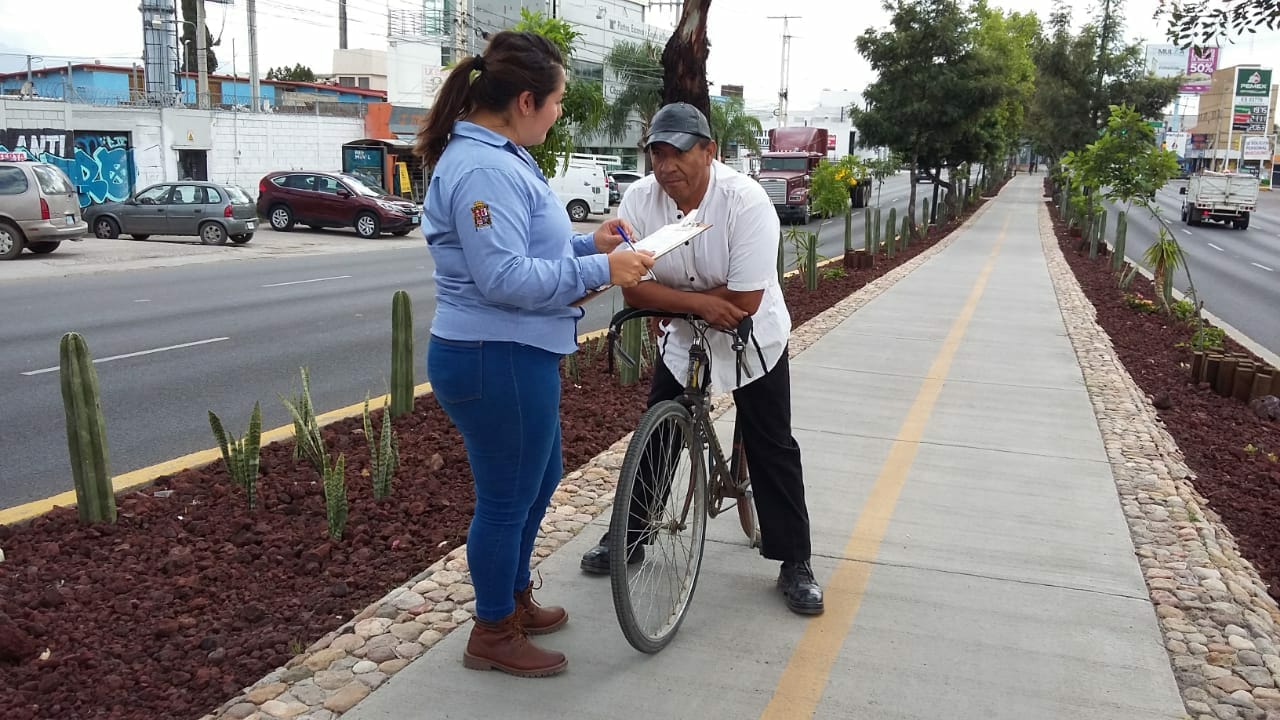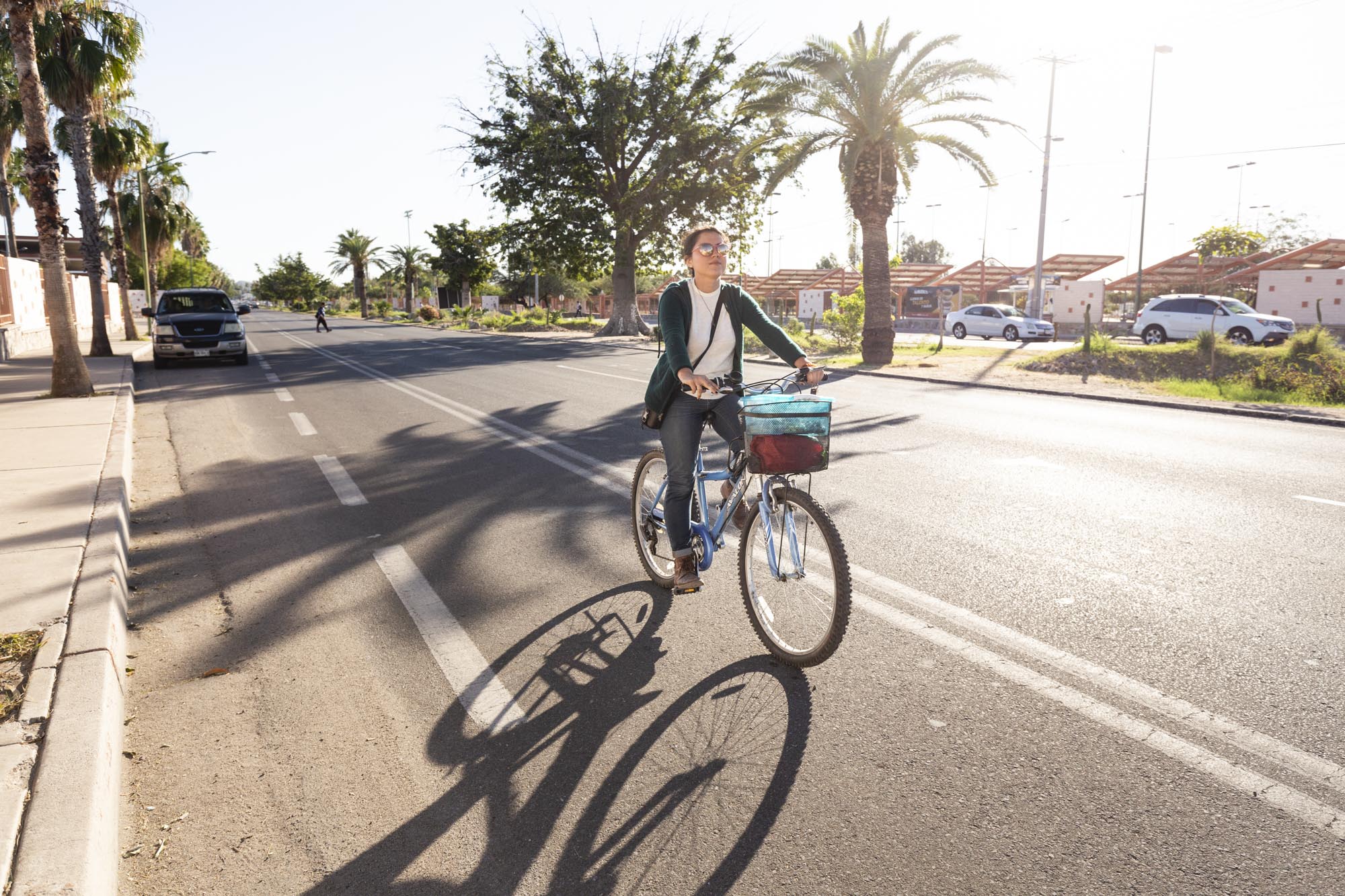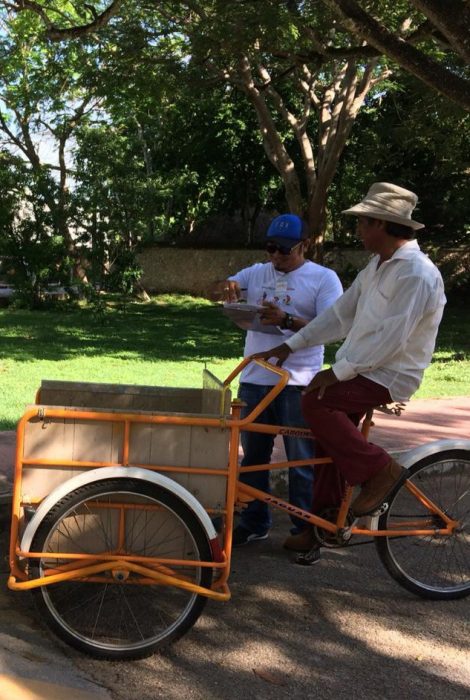If the bicycle helps to enforce a more equal social development as well es in the fight against climate change, it is right to ask – Which climate do cyclists face every day on our roads, and how can we make cycling more attractive?
Within the initiative CiClim Cities, cycling for a low-carbon development, five local governments and numerous civil society groups undertook a series of more then 2000 interviews with local cyclists in León, Hermosillo, Mérida, Morelia and Tlaquepaque.

The results show that an active mobility policy aimed at attracting more users to the bike has a great sustainability potential and not only contributes to a more equal social and economic development:
– Once cyclist, always cyclist: The frequency of bike use is very high, on average 84 % of the interviewees use their bike five days or more per week
– The bicycle facilitates the access to economic and educational opportunities: Most bike users use their bike for getting to work (76%), shopping (46%), leisure (38%) and for getting to school or university (17%)
– The bicycle supports the familiar economy: The average salary of the interviewees is about MXN 5873 (EUR 280), therefore cyclists can realize significant savings compared to other modes of transport.

The results permit to identify priority actions to improve the conditions for cyclists. It has become clear that road safety and cycling infrastructure must be improved in the investigated cities:
– The lack of road safety is the principal barrier for using a bicycle: identified by 48% of the interviewed persons, related as well with the lack of proper infrastructure, stated by 21% as principal barrier.
– Cyclists face collisions or falls of different grade: 34% of the interviewees suffered a collision a have fallen with their bike within the last two years, a period sufficiently short to show the constant risk for cyclists.
The Cyclist Profile Diagnosis is a fundamental tool to gather reliable key information on cycling practice in a city. Its results provide a powerful diagnose for local governments as well as for civil society groups who which to impulse action to increase the use of bicycles. It’s based on a qualitative dimension which allows to get to know from a users’ perspective the motivation to cycle, its frequency of use, principal destinations, difficulties and incentives to continue moving in a sustainable manner.

The tool has been developed under the umbrella of the project “Climate Protection in the Mexican Urban Policy” (CiClim) in cooperation with the Institute for Transport and Development Policy (ITDP) and the Cyclecities initiative. All material is available on the following link.
The project CiClim is implemented by the Deutsche Gesellschaft für Internationale Zusammenarbeit (GIZ) GmbH and forms part of the International Climate Initiative (IKI) of the Federal Ministry for the Environment, Natural Conservation and Nuclear Safety (BMU).
More information:
Get to know detailed results in the journal “Alcaldes de México” (Spanish only)
Consult the iNUA Policy Brief “Solution: Cycling” of the Proyecto GIZ-SUTP
